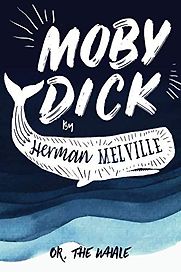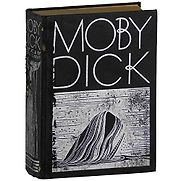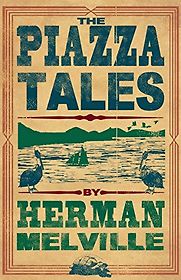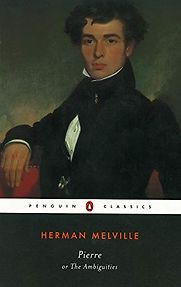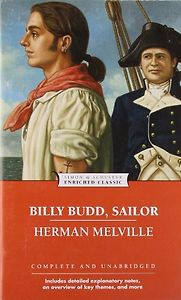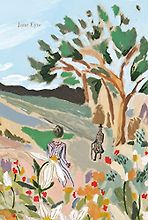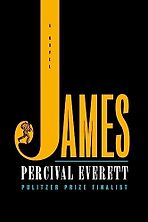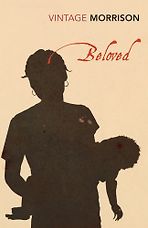Recommendations from our site
“I read Moby-Dick about 13 years ago, way before I started to write naval fiction. I read it because I really like the film Jaws, and the main character in that was based on Ahab in Moby-Dick. I read it and I just really, really liked it. Moby-Dick was the book that really started my love of sea stories. It’s about crews at the extreme facing quite formidable forces and seeing how they behave in those situations. I like the way the sea is treated as a character all the way through the book, even before they get on board the ship. The sea is prevalent in everything, this ominous force in the background. I like the characters and the different dynamics between them. Starbuck, the first mate, is maybe my favorite fictional character of all time.” Read more...
The Best Naval Historical Fiction
Katie Daysh, Novelist
“I thought about responding to your call for a list of the top 5 American novels with ‘1) Moby-Dick 2) Moby-Dick 3) Moby-Dick’—an obsessive answer that would be true to the spirit of this monomaniacal book! I won’t go full Ahab and claim that it is THE great American novel, but I will confess it is my favorite. There’s something about its dizzying mix of high and low, Herman Melville’s exuberant love of language, and the novel’s remarkable capaciousness (everything reminds me of Moby-Dick!) that makes me love to read it, reread it, teach it, joke about it, tweet about it, reference it at the slightest provocation.” Read more...
The Best 19th-Century American Novels
Nathan Wolff, Literary Scholar
“It showcases the susceptibility of this republic and others, to being overcome by populist demagogues, the danger of democracy being usurped by tyranny. In Moby-Dick, the crew are proxies for a cross-section of society. They enter an almost parody version of ‘the social contract’ to ship out with the Pequod. They find themselves at the mercy of Captain Ahab’s regime. During Melville’s day, the plot provided a way of reflecting on slavery; it continues to call attention to the danger of authoritarianism. My book ended before 2016; since then, there were umpteen new readings of Moby Dick in light of Donald Trump’s election. That’s part of the afterlife of Moby-Dick. It has been seized upon in popular culture and by the media as a reference point for misadventures that overtake the United States.” Read more...
“Moby-Dick, Melville’s epic whaling narrative, was fully appreciated only posthumously…In recent decades, many scholars have been committed to reexamining declarations of literary and historical greatness, primacy, or supremacy, recognizing that notions of transcendence have always been rooted in subjective and structural biases. To call a work timeless may be a shorthand for elitist judgments, but it can also suggest how each time period brings a fresh perspective to the text. This is what makes reading Moby-Dick exciting now, whenever your now is.” Read more...
The Best Herman Melville Books
Hester Blum, Literary Scholar
“Melville…became obsessed with the…question: If we are Spinozists and persuaded by his deductive argument, what happens to our autonomy? We’re swamped by infinity. That, I believe, is at the heart of what’s going on in Moby Dick. What that great white whale represents is impersonal, logically constituted reality that has no regard for our autonomy, that would swamp us, that would reconstitute our individuality in its image, and it’s an insult to our very beings.” Read more...
Rebecca Goldstein, Philosopher
“Melville had this great wealth of experience from his own whaling days and he wanted to express that in some way, but came up against the same problem every writer who tackles the sea faces. You have this huge subject, but not a lot of contours; not a lot to differentiate it all, with which to forge a narrative. The sprawl of Moby Dick reflects that, the apparent randomness of the chapters, the jumble of fiction and non-fiction. Like all writers on the sea, he’s intrigued by the practical problems, seamanship, fishing techniques. But underlying it all is this great, undifferentiated mass. One of the interesting things about the sea as a subject is that it doesn’t hold history. As soon as a ship passes through the water the water closes up” Read more...
Philip Marsden, Novelist
“Through the whale, as I see it now, we feel the power of the relationship between man and nature, exposing man’s urge to control the natural world.” Read more...
The best books on Saving the World
Jonathon Porritt, Environmentalist
“Evil derives from the violent avoidance of the realisation of our own mortality and there could be few better examples of this in literature than Melville’s portrait of Ahab in Moby-Dick.” Read more...
Adam Haslett, Novelist
